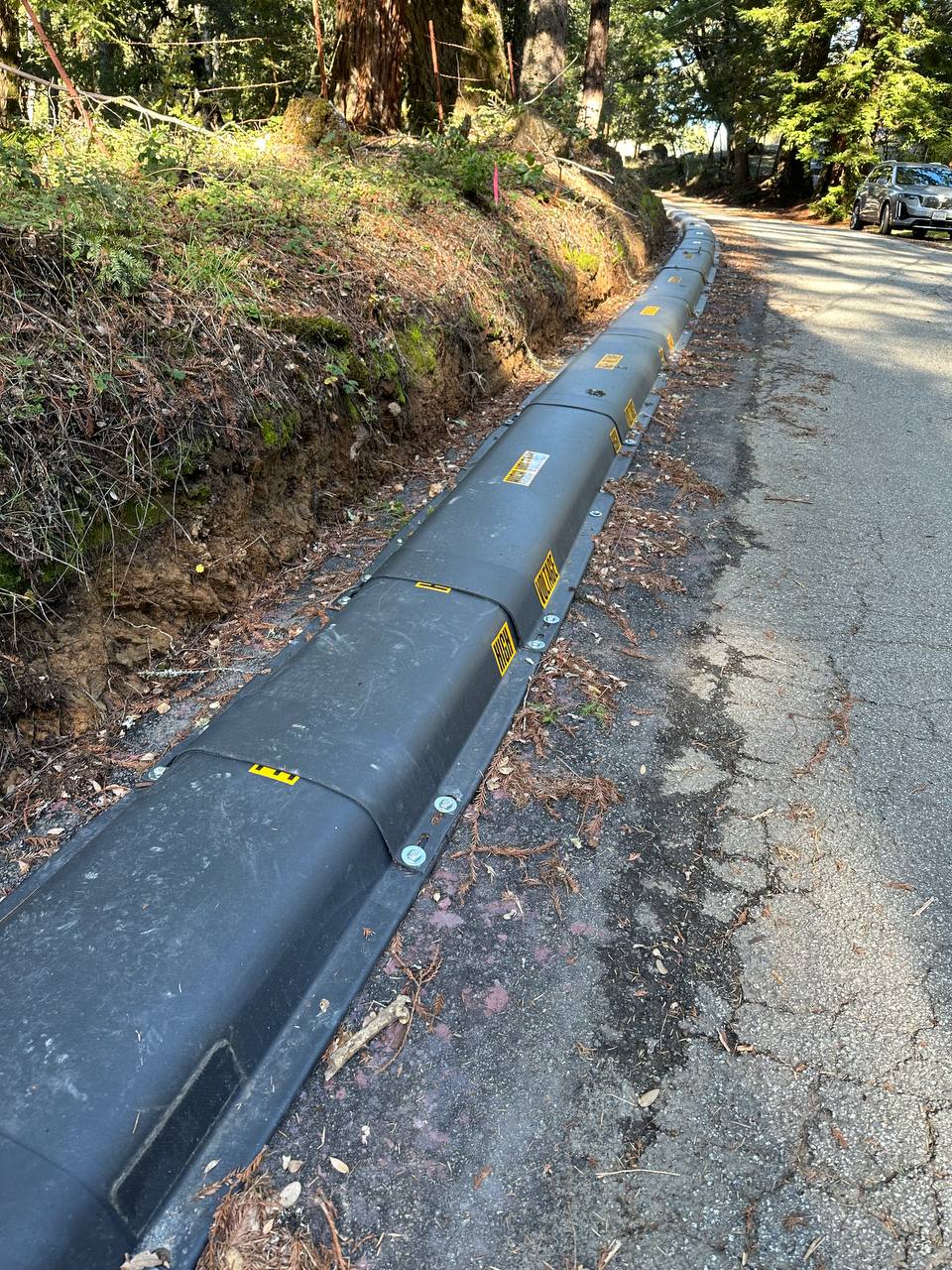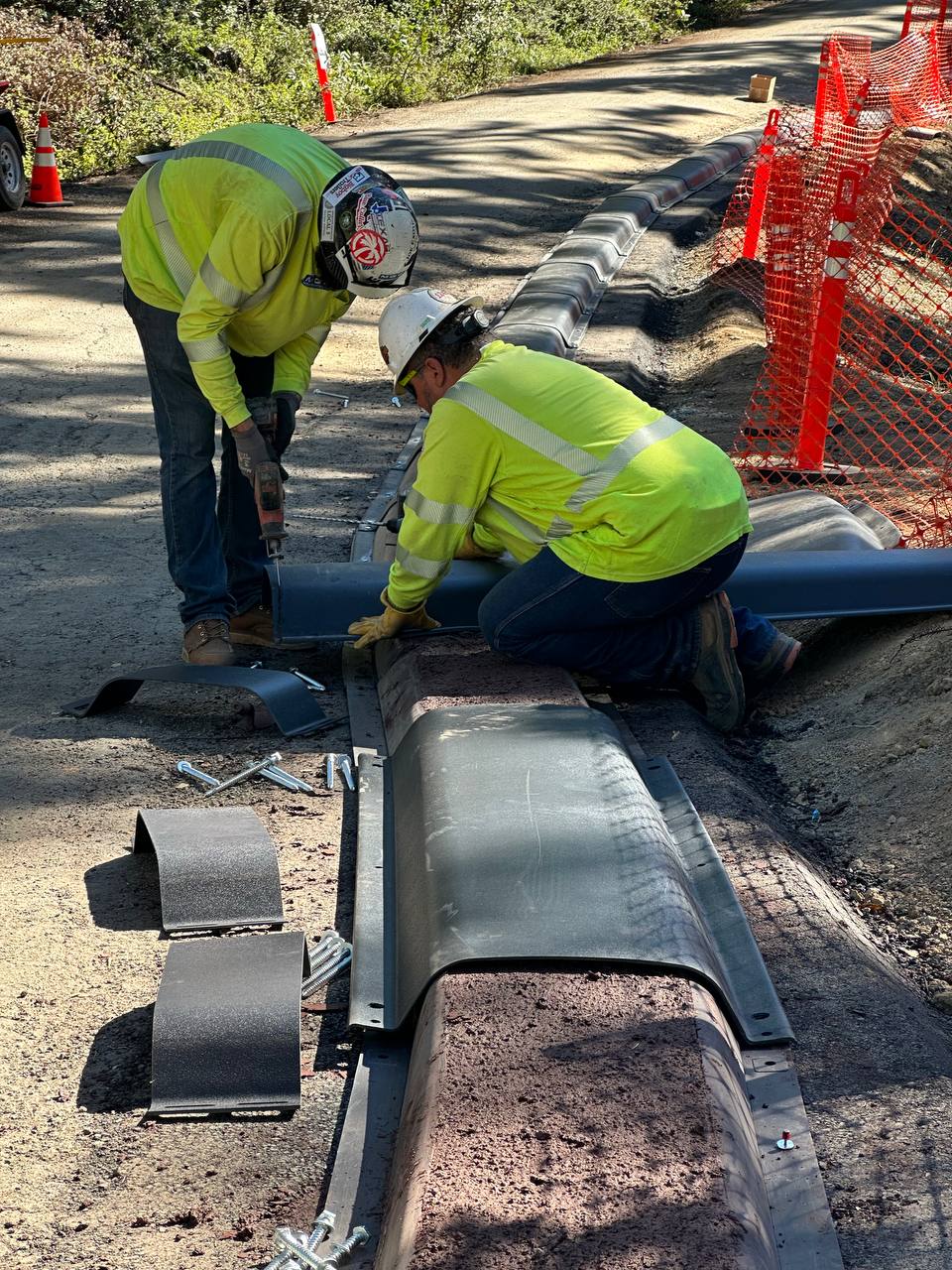GLDS
With our patented Ground-Level Distribution System (GLDS), power lines are neither suspended from utility poles nor buried underground. Instead, lines are placed inside protected and resilient conduits that rest on the ground. This places the electric cable in a conduit in a specially molded tray, tied in with a Basalt Rebar, sealed with a special Geopolymer cement, placed at ground level and capped in engineered .
GLDS enables faster construction and reduced cost. The system is ideal for locations where under-grounding is not feasible due to hard granite, lava rock or cultural and environmental conditions.
The new method which inserts the cable into a hard surface that typically can’t be cut open with everyday tools (and withstands being run over by semi-trucks without damage) and can be done 2-3 times faster. The boxes can be put a few inches into the ground, but without the typical fuss of digging trenches.
Rapid deployment where trenching is not possible due to:
Excessive ground hardness, rocky soil
Inaccessibility for trenching equipment
Inability to dig in sacred land
Super high strength flexibility balanced, epoxy resin concrete:
Graphite grid reinforced with fiberglass to minimize cracking
Light weight mix to pump and deploy in remote locations
Water-free mix impervious to fire spalling and cracking
Maximum heat-dissipation capability to maintain cool temperature within HDPE conduit
Standard add-mix components with no special tools or techniques required to pour
Engineered composite material cable tray characteristics:
Impervious to UV and high flame temperature resilient (UL94, V-0)
RoHS Compliant and specifically designed for flame retardancy
Ability to embed line marking and safety warnings
Configurable to meet multiple bend and riser layouts
Snap together rapid installation feasibility
Configurable add fiber optic or additional communication cable options




Meeting Electric Distribution System Needs
Meets Rural, Environmental, Climate and Ignition challenges Safety:
- Eliminates overhead ignition risk
- Removes overhead vegetation removal and working risks for crews
- Removes standard underground trenching hazards and spoilage removal
- Multilayers of arc protection: outer engineered composite material cable tray, Resin blends of polypropylene (PP) and un-crosslinked EPDM rubber, polyethylene tray, Fireproof Or Super concrete (proprietary blend), inner HDPE conduit, and standard HPE cable Reliability
- Eliminates PSPS shutdowns
- Removes animal, tree fall, and vegetation caused outages entirely Affordability
- Less than half the cost of standard trenching
